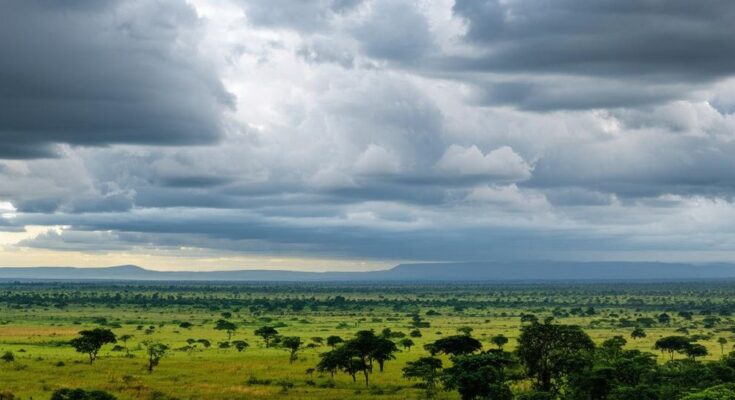The Central African Republic (CAR) is trapped in a cycle of underdevelopment, state fragility, and climate vulnerability. With a GDP per capita of $495 in 2019, severe poverty affects 70% of the population, compounded by a history of political instability since 1960. These interconnected challenges hinder effective climate resilience and adaptation strategies, necessitating a comprehensive approach to foster sustainable development and improve the nation’s resilience against future shocks.
The Central African Republic (CAR) finds itself in a precarious situation, afflicted by intertwined issues of underdevelopment, state fragility, and significant climate vulnerability. As outlined in the Central African Republic Climate and Development Report (CCDR), these elements collectively perpetuate a cycle that undermines progress and resilience in the nation. Economically, CAR faces profound underdevelopment, with a GDP per capita of merely $495 as of 2019, one of the lowest globally. This economic stagnation translates into a disheartening Human Development Index (HDI) ranking, indicative of alarming deficiencies in health, education, and standards of living. Children born in CAR currently have an alarming potential achievement rate of just 29%, should they receive complete education and healthcare access. The societal fabric is further strained, with about 70% of the population living below the poverty line, and almost all households experiencing shocks due to armed conflict (54%) and climate-related events (27%) from 2018 to 2021. Governance in CAR has been severely affected by a historical backdrop of conflicts and political instability, further contributing to a fragile state. Since its independence in 1960, CAR has grappled with recurrent violence that has ravaged its governance structures. The resultant instability leads to societal tensions often erupting into violence, resulting in widespread displacement and community fragmentation. Environmentally, over 80% of the population depends on agriculture and forestry, which are especially vulnerable to the ramifications of climate change. The CCDR highlights alarming shifts in rainfall patterns and an increase in extreme weather, which jeopardize water security and livelihoods. This erratic climate further exacerbates food insecurity, posing acute challenges to the national economy. The challenges confronting CAR are significantly interwoven, culminating in a complex framework that perpetuates economic, social, and environmental stagnation. The interplay among underdevelopment, political fragility, and climatic threats constrains CAR’s potential to adopt effective climate resilience and adaptation strategies. Inadequate governance coupled with policy implementation challenges also hampers meaningful international cooperation. To address these compounding challenges, it is essential that CAR breaks the cycle through a strategic and integrated approach. Targeted investments, bolstering institutions, and innovative reforms must be prioritized to tackle both the underlying causes and the surface symptoms of the issues at hand. Without such a comprehensive strategy, CAR risks deepening its struggles, thereby undermining the future welfare and development prospects of its population.
The Central African Republic is characterized by a constellation of challenges stemming from chronic underdevelopment, institutional fragility, and significant climate vulnerability. This situation has been exacerbated by internal conflicts and historical political instability, which continue to affect the governance structure and the overall resilience of the nation. As much of the population relies heavily on agriculture and natural resources, changing climatic conditions directly threaten their livelihoods and exacerbate food insecurity. The CCDR presents a detailed analysis of these issues, highlighting the interconnected nature of development, governance, and climate resilience in CAR.
In summary, the Central African Republic stands at a critical juncture, where the interrelated crises of underdevelopment, state fragility, and climate vulnerability present formidable challenges. By adopting a multifaceted approach that targets the root causes of these issues, CAR can aim to cultivate a resilient future. This strategy should focus on fostering economic growth, strengthening governance, and developing sustainable adaptation policies to mitigate the impacts of climate change. Only through a concerted effort can CAR hope to improve the well-being of its citizens and advance towards a sustainable developmental trajectory.
Original Source: reliefweb.int




